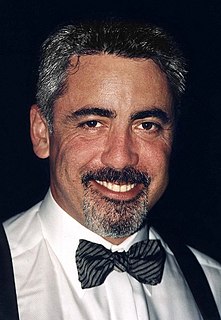A Quote by Russell Kirk
I did not love cold harmony and perfect regularity of organization; what I sought was variety, mystery, tradition, the venerable, the awful. I despised sophisters and calculators; I was groping for faith, honor, and prescriptive loyalties. I would have given any number of neo-classical pediments for one poor battered gargoyle.
Related Quotes
Art on the contrary sought this harmony in practice [of art itself]. More and more in its creations it has given inwardness to that what surrounds us in nature, until, in Neo-Plasticism, nature is no longer dominant. This achievement of balance may prepare the way for the fulfillment of man and signal the end of (what we call) art.
Every living thing was shunning him. Poor little Peter Pan, he sat down and cried, and even then he did not know that, for a bird, he was sitting on his wrong part. It is a blessing that he did not know, for otherwise he would have lost faith in his power to fly, and the moment you doubt whether you can fly, you cease forever to be able to do it. The reason birds can fly and we can't is simply that they have perfect faith, for to have faith is to have wings.
All evil results from the non-adaptation of constitution to conditions. This is true of everything that lives. Does a shrub dwindle in poor soil, or become sickly when deprived of light, or die outright if removed to a cold climate? it is because the harmony between its organization and its circumstances has been destroyed.
What the world wants, what the world is waiting for, is not Modern Poetry or Classical Poetry or Neo-Classical Poetry - but Good Poetry. And the dreadful disreputable doubt, which stirs in my own skeptical mind, is doubt about whether it would really matter much what style a poet chose to write in, in any period, as long as he wrote Good poetry.
Faith in the continuance and enhancement of the intrinsic values--faith in truth, in beauty, in friendship, in love and harmony of life--in short, faith in reason and the worth of spiritual life--such faith is only another name for faith in the persistence of spiritual individuality. For, I repeat, these values are real only as functions of personal experience and deed. To have faith in the permanence of intrinsic values is to assume the enduring reality of selves who know truth, feel beauty, who love and win spiritual harmony.







































